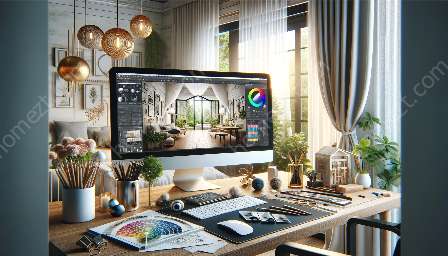Interior design is a complex and multi-faceted industry that relies heavily on software and tools to bring concepts to life. The development of design software for interior design comes with ethical considerations that designers, developers, and stakeholders need to address. This topic cluster aims to explore these ethical considerations in an attractive and real way, focusing on the compatibility of design software and tools with interior design and styling.
The Impact of Software Development in Interior Design
Before delving into the ethical considerations, it's important to understand the significant impact that software development has on interior design. Design software and tools have revolutionized the way interior designers conceptualize and present their ideas to clients. From 3D rendering to virtual reality, these tools have enhanced visual communication and project management in the industry.
However, this digital transformation also raises ethical questions that need to be addressed to ensure responsible and sustainable software development for interior design.
Privacy and Data Security
One of the key ethical considerations in software development for interior design revolves around privacy and data security. Design software often requires access to sensitive client information, including floor plans, personal preferences, and even financial details. Developers must prioritize data protection and encryption to prevent unauthorized access and data breaches that could compromise clients' privacy.
Transparency and Informed Consent
Transparency and informed consent are crucial ethical principles that should guide the design and development of interior design software. Designers and developers should be transparent about the data collection and storage practices within their software tools. Users must also provide informed consent regarding the use of their data for analytics, marketing, or any other purposes.
Equity and Accessibility
Software developers have an ethical responsibility to ensure that their tools are accessible and equitable for all users, including individuals with disabilities. This involves creating user interfaces that are intuitive and accommodating to diverse user needs, as well as providing adequate support and resources for inclusive design practices.
Intellectual Property and Copyright
Another critical aspect of ethical considerations in software development for interior design is the protection of intellectual property and copyright. Design software should uphold the rights of designers and creators, preventing unauthorized duplication or replication of original designs. Developers must implement robust copyright protection measures to safeguard the intellectual integrity of interior design projects.
Sustainability and Environmental Impact
As the interior design industry becomes increasingly conscious of sustainability and environmental impact, software developers must align their practices with these ethical priorities. Design software should facilitate sustainable design practices, such as material sourcing, energy efficiency analysis, and waste reduction. Furthermore, developers should strive to minimize the carbon footprint of their software products and contribute to a more environmentally responsible industry.
Professional Standards and Ethical Practice
Ultimately, ethical considerations in design software development for interior design should align with professional standards and ethical practice within the industry. Developers should collaborate with leading interior design professionals to ensure that their software tools meet the highest ethical and professional standards. This involves continuous dialogue, education, and ethical training to empower designers with the knowledge and tools to practice ethically within a digital landscape.
Conclusion
Design software and tools play a pivotal role in shaping the future of interior design, offering innovative solutions and creative possibilities. However, ethical considerations cannot be overlooked amidst this technological advancement. By addressing privacy, transparency, equity, intellectual property, sustainability, and professional standards, software developers can contribute to a more ethical and sustainable future for interior design.
It is imperative for all stakeholders, including designers, developers, and clients, to engage in open discussions and collaborative efforts to ensure responsible and ethical software development that enhances the practice of interior design while upholding ethical standards.


























